Catching up with Ukraine
This episode of EuroFile@6 was recorded Jul 21st.
Scott and I were joined by our special guests Alexander Khara, Sergej Sumlenny and Nathalie Vogel (Transatlantic Crew) on EuroFile@6 to talk about the latest about Russia’s war of genocide in Ukraine and what could be the possible developments into August. We also discussed American and European aid to Ukraine and the energy crisis.
Here are some readings and posts to go a little deeper into the topics covered in the podcast.
Two views on Germany and its policy towards Ukraine
Wolfgang Ischinger, Germany’s Ukraine Problem
In late July 2022, it emerged that Germany’s plan to help its eastern European allies arm Ukraine had made little progress. According to the scheme, countries such as Poland, Slovakia, and the Czech Republic would supply Kyiv with Soviet-era weaponry from their armed forces; in turn, Germany would transfer its own Western-made equipment to replenish the stock of those countries. Yet despite months of talks, no such transfers of German weapons have been made.
Sam Denney, Germany’s Zeitenwende: Be Patient, It’s Early Days
It is unsurprising that German efforts to reverse its foreign policy are a slow process. This is a huge undertaking — but it is happening.
Just days after Russia invaded Ukraine on February 24, German Chancellor Olaf Scholz proclaimed that a new era, or Zeitenwende – had begun for Germany. With it, one sacred cow after another of German foreign policy – on defense spending, arms deliveries, and more – were slaughtered.
Scholz weighs in on the Russian visa ban

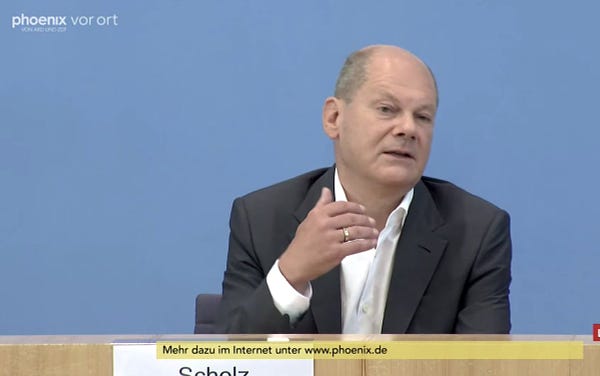
Julian Ropcke’s response:
Putin didn't fire a gun.
Putin didn't kill a Ukrainian.
Putin didn't steal iPods from Ukrainian children.
Putin didn't brag about raping Ukrainian women.
Putin didn't tattoo a Z on his chest.
Putin didn't humiliate and attack Ukrainian refugees throughout Europe.
Russians did.
Ukrainian partisans

Christian Science Monitor Ed Board, A crucial front against Russian intrusions
Not far from the war front in Ukraine lies another front – a nonviolent one – against another type of Russian intrusion on one of its European neighbors. It lies inside Bulgaria, a country that for most of this year worked hard to end Moscow’s malign influence on its democracy and create clean governance in the European Union’s most corrupt member state.
That effort in the Black Sea nation began last year after mass anti-corruption protests brought to power a Harvard-trained reformer, Kiril Petkov. The new prime minister quickly put in place many anti-corruption measures and shone a bright light on corrupt practices by organized crime. After the brutal invasion of Ukraine, he also ended a long tradition of pro-Moscow leanings among Bulgarian politicians.
Hungary: the weak link in the European Union

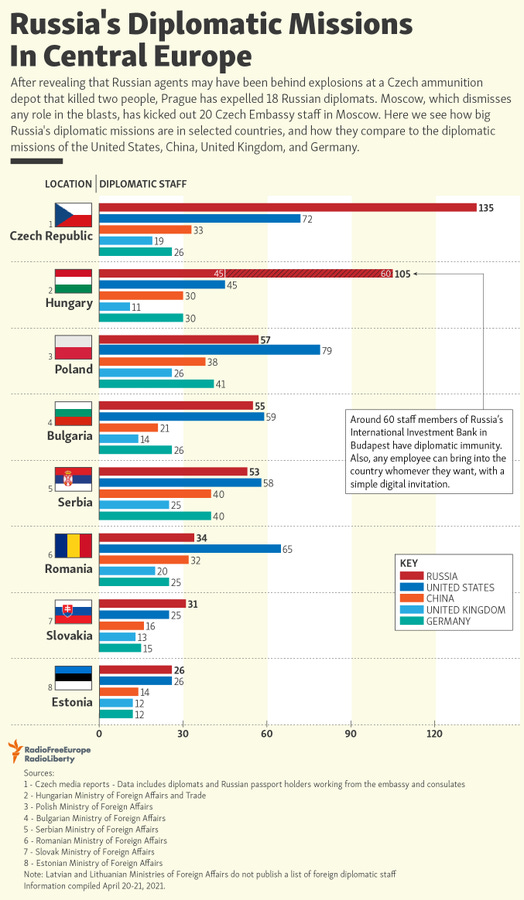
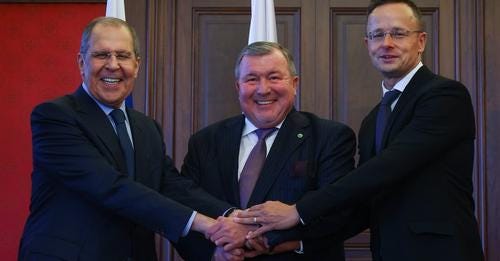
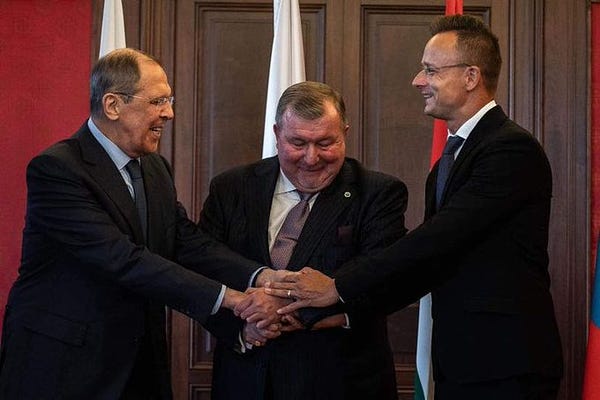
Decode39, How the Italian media (silently) broke with Chinese outlets
Thanks to Draghi’s moral suasion, Italy’s main newswire ANSA ended its cooperation agreement with the Chinese State-controlled news agency Xinhua. It’s the latest instance of a wider trend, as more Italian outlets walk away from Beijing’s propaganda. Still, argues IPAC’s Harth, the shroud of silence testifies to Italy’s reluctance.
The International Strategic Action Network for Security, Pro-Kremlin Disinformation in Ukraine: Five Key Messages- Maria Avdeeva
Read the full report here: Download .PDF (136,88 Kb)
Kyiv and its Western partners are preparing provocations in the Donbas using chemical weapons
The U.S. and EU are betraying Ukraine for the sake of relations with Russia
Spotted in Montenegro

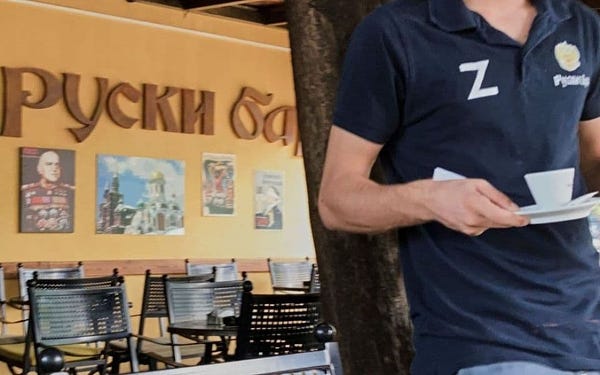
CEPA, Hesitantly, Ukraine’s Grain Begins to Ship
After weeks of fitful negotiations — and despite a missile attack on the port of Odesa before the ink on the agreements was even dry — a suite of deals between Ukraine, Turkey, and Russia has finally allowed Ukraine’s grain harvest to begin flowing out of the country. How long that arrangement will hold, whether it will address the world’s mounting food crisis, and whether the tenuous success of one set of negotiations might signal prospects for broader talks between Russia and Ukraine remain matters of intense speculation.
Russian show trial prison cells in Mariupol

Ukraine resources at risk
Russia has stolen more than $12 trillion worth of minerals from Ukraine, according to The Washington Post.
According to journalists, 63% of Ukrainian coal deposits, 42% of metal deposits, 20% of gas and 11% of oil deposits are now under the control of the Russian Federation.

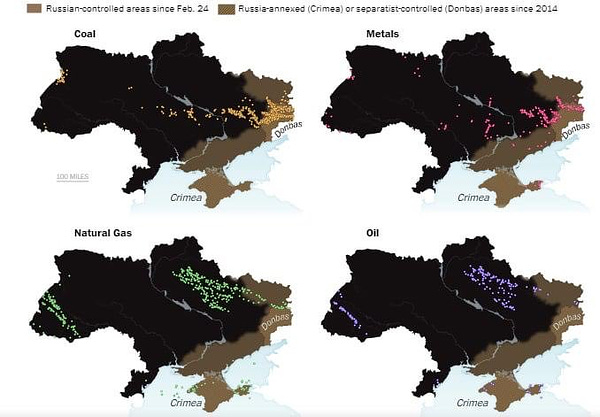
RFE/RL Bulgarian Service, Bulgarians Press Caretaker Government For Independence From Russian Gas
Hundreds of people took part on August 10 in a second protest to demand Bulgaria continue a path toward gas independence from Russia.
The protesters gathered in front of the presidential building in Sofia and said they want the country's current caretaker government to reject Russian gas and maintain the policies of the pro-Western former government.
Alexander Vindman, Stop Tiptoeing Around Russia
The war has now reached an inflection point. The United States must decide whether it will help Ukraine approach the negotiating table with as much leverage as it can or watch Russia reorganize and resupply its troops, adapt its tactics, and commit to a long-term war of attrition. If Ukrainian democracy is going to prevail, U.S. foreign policymakers must finally prioritize dealing with Ukraine as it is rather than Russia as they would like it to be.
NAFO’s latest
Rasmus Hindrén, Expert on the ground: What the NATO ratification process looks like from Finland--Atlantic Council
This extraordinary bipartisan endorsement will also strengthen bilateral relations between the United States and Finland. It creates a more structured framework for interaction with the Pentagon as well as with Congress, building on prior goodwill while eliminating the need to explain the nuances of Finnish defense policy to US senators and representatives.
Since the tandem applications were made in mid-May, twenty-three of thirty NATO members have already voted yes, led by Canada, Denmark, Iceland, and Norway on July 5. At the same time, it’s important to note that every country makes its own decision. We will keep watch for eddies and turbulence ahead, especially in Turkey and Hungary, given that all members must vote to ratify.
Thanks for listening,
Mo & Scott











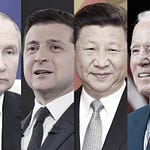
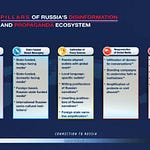
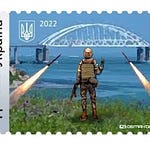
Share this post